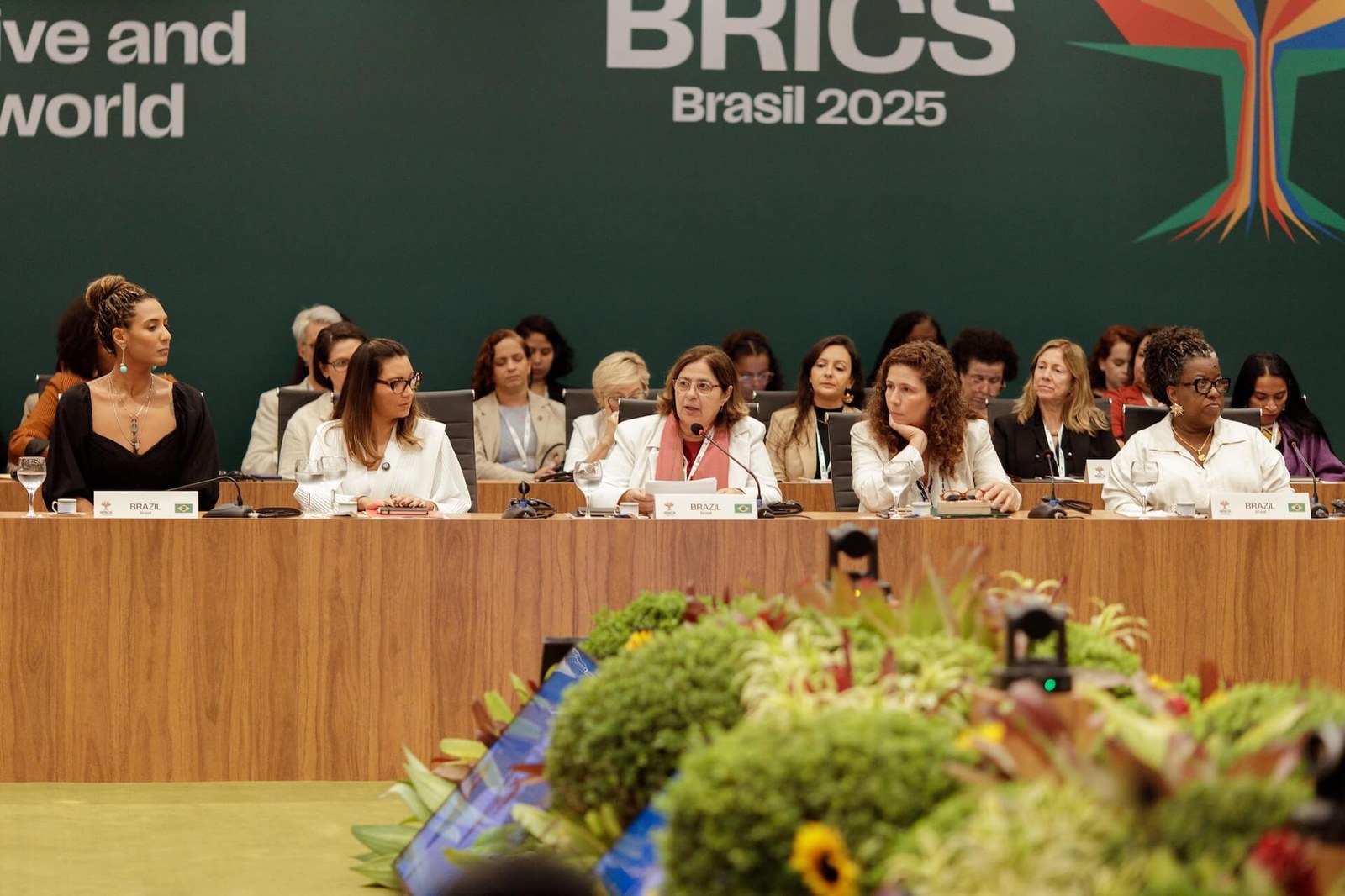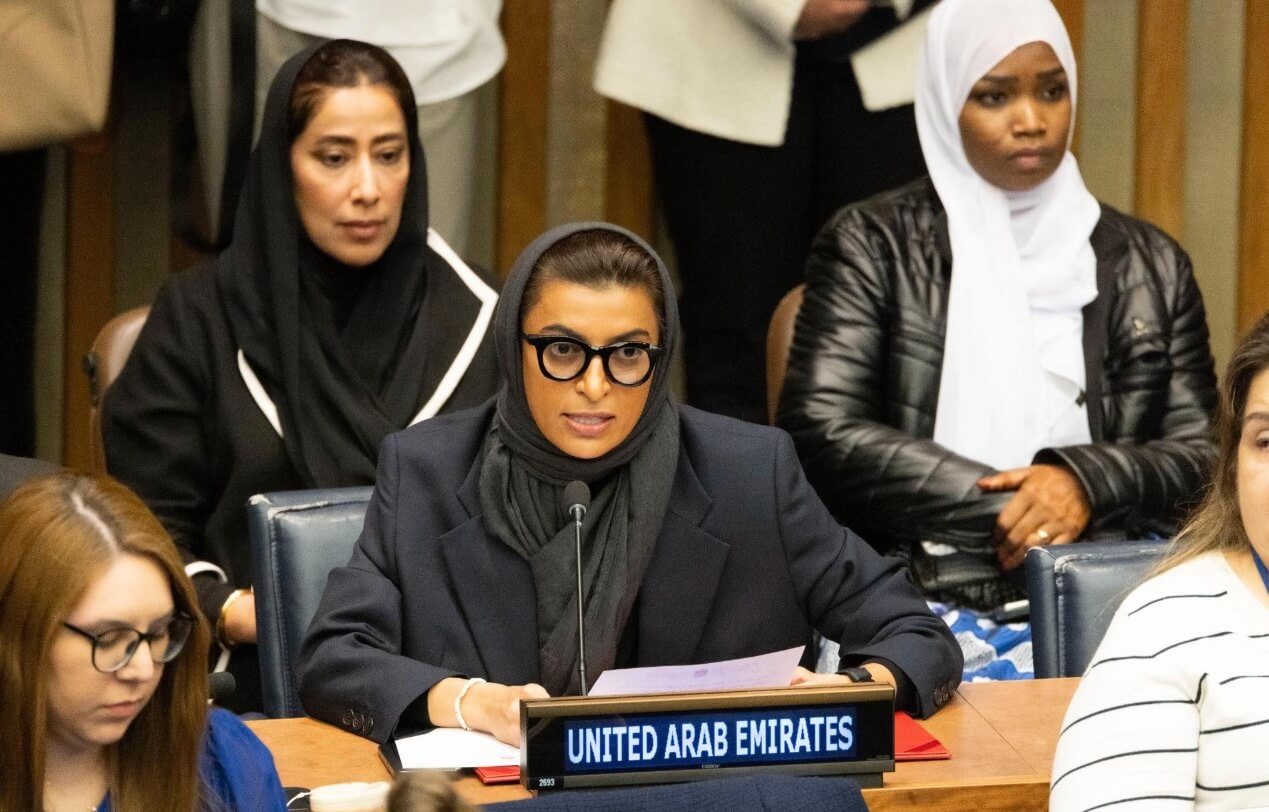Meeting of BRICS Women Ministers reinforces the essential role of female participation in shaping a new global governance
The meeting took place this Thursday, April 24, at the Itamaraty Palace in Brasilia (DF), with entrepreneurship, digital governance, and climate action in the priority pillars.

By Franciéli Barcellos de Moraes / francieli.moraes@presidencia.gov.br
The proposal for a new multipolar, equitable and democratic global order, one of the BRICS' main guidelines, depends not only on restructuring the world's public governance system and financial architecture. It also depends on basic policies, coordinated between the group's member countries, to support the international premise nationally. Within this framework, gender equality policies took the center stage in the agenda of Global South nations this week in Brasilia, Federal District.
The BRICS Women Ministers’ Meeting was held at the Itamaraty Palace, the home of Brazilian diplomacy. Amid the cultural diversity of what it means to ''be a woman'' across the bloc’s civilizations, one common ground emerged: the certainty of the importance of active female participation for a qualitative change in today's complex international landscape.
“Our goal is not only to share experiences, but also to build concrete bridges of cooperation among our countries. We believe that the exchange of best practices and the establishment of strategic partnerships can accelerate progress toward gender equality in all its dimensions,” pointed out Brasil’s Minister of Women, Cida Gonçalves, during the event’s opening.
Representing the Brazilian Government, Ministers Anielle Franco (Racial Equality), Esther Dweck (Management and Innovation in Public Services), and Macaé Evaristo (Human Rights and Citizenship) also took part in the event. Sociologist Janja da Silva, the First Lady of Brasil, was also present at the opening session.
Entrepreneurship, digital governance, and climate action in the priority pillars
The meeting’s discussions focused on three key areas of debate and action that were prioritized on the BRICS women’s agenda. These topics were explored in three separate thematic sessions held in the afternoon, alongside national experts. In line with the overarching guidelines of Brasil’s presidency of the group, the sessions addressed:
Women, Development, and Entrepreneurship - The promotion of initiatives and investments aimed at ensuring women’s equal participation in economic and social development, as well as the equitable sharing of the benefits of that development, was the focus of the first session. Brasil highlighted wage parity and transparency; the inclusion of women in positions of power and decision-making in economic matters; and gender equality in the division of paid and unpaid caregiving work. Since 2020, the BRICS Women’s Business Alliance has met annually.
Digital Governance: Misogyny and Misinformation - The importance of recognizing emerging forms of violence against women facilitated or amplified by technology, including artificial intelligence (AI), was emphasized. In this sense, the second session of the meeting focused on policies, structures, and processes that guide the efficient and, above all, ethical use of technologies. The Brazilian presidency highlighted the need for BRICS countries to map out best practices for preventing and responding to this scenario.
Women’s Empowerment, Climate Action, and Sustainable Development - While about 80% of those displaced by climate change and natural disasters are women or girls, it is predominantly men who debate these issues. For example, at the 2023 United Nations Climate Change Conference (COP28), only 15 out of 133 world leaders were women, a number similar to previous years. These are data from UN Women. Thus, the final panel emphasized the need for BRICS countries to commit to promoting the full, meaningful, and equal participation and leadership of all women in climate action.
In the Middle East and Sub-Saharan Africa, examples that drive change

The global average of female participation in parliaments is 27.2%, as reported by UN Women earlier this year. However, the United Arab Emirates (50%), South Africa (44.5%), and Ethiopia (35.8%) are BRICS countries that exceed this average and, consequently, serve as benchmarks for other countries in the group in terms of maintaining greater female representation in institutional politics.
“In 2015, we created our Gender Balance Council with one goal: to be among the top 25 countries in the UN Gender Inequality Report. At that time, we were ranked 49th. This council gave us the strength to build a solid agenda. We moved from 49th to 7th place globally in the report, becoming the leaders in our region. This created an inspiring model for neighboring countries. I come from the Arab world, where women face many political challenges. If we create a positive model in this part of the world, others will have an example to follow,” stated Mona Almarri, Vice President of the Gender Balance Council of the United Arab Emirates (UAE).
The Ambassador of Ethiopia to Brasil, in an exclusive interview with BRICS Brasil, emphasized that this is a central issue for the Ethiopian government, not only in executive and legislative spaces but in all spheres. "If we want to have inclusive and sustainable development, it will not be possible without the full participation of women at all levels and in all aspects. These factors are absolutely indispensable," he stated.
In the same vein, the Minister of the Presidency for Women, Youth, and People with Disabilities of South Africa, Sindisiwe Chikunga, presented South Africa's policies to promote female engagement and emphasized the importance of the transversal nature of the issue. "We have a history that was not fair to women. [...] Today, we have policies such as reserving 40% of public tenders for women-led businesses and setting targets of 50% women on state-owned company boards. Our goal is to correct historical inequalities. In BRICS, we advocate for gender equality to be cross-cutting in all areas, from finance to infrastructure," she said.
A time for strengthening bilateral ties
The agenda also served as an opportunity for the Minister for Women, Cida Gonçalves, to hold bilateral meetings with representatives from two BRICS member countries seeking to strengthen cooperation with Brasil on gender equality issues on the day leading to the event (Wednesday (23). Minister Gonçalves met with Mona Almarri from the United Arab Emirates and Lin Yi, Vice President of the All-China Women's Federation, with whom she discussed cooperation possibilities across various fronts, such as equal pay, tackling violence, addressing climate change with a gender perspective, and digital transformation with opportunities for women and girls.
"I would like to take this opportunity to strengthen cooperation between the United Arab Emirates and Brasil, particularly concerning policies for women. We are very interested in discussing topics such as the inclusion of women in corporate boards, the development of joint projects, the caregiving economy, and equal pay — a subject on which we have recently made progress in our country. We also heard with enthusiasm about the Brazilian Women's House [Casa da Mulher Brasileira]. We would like to learn more about this experience and propose exchanges that will allow us to grow together," said Almarri.
The BRICS Leaders' Summit will take place on July 6-7 in Rio de Janeiro city. During this time, heads of government and State will discuss the outcomes of the ministerial meetings and deliver the Joint Declaration.